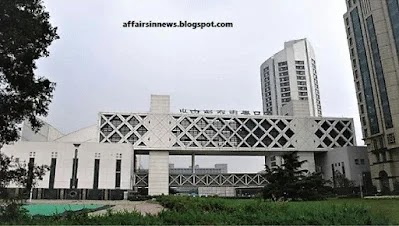I saw the sun for 15 minutes in 7 months - Suspected of spying on Wet Skin, 6 years in prison in China
Eiji Suzuki, 65, president of the Japan-China Youth Exchange Association, who returned to Japan this month after being detained by the Chinese authorities for about six years for "spying," gave an interview to the Mainichi Shimbun. Chinese authorities confined Suzuki in a closed room for nearly seven months without formal arrest procedures. Mr. Suzuki said, "I was only able to see the sun for 15 minutes [in about seven months], which was really hard."
Since 2014, China's Xi Jinping administration has tightened control over society through the enactment of the Anti-Espionage Law and the National Security Law, and has been strictly monitoring foreigners. In 15 years, he began detaining Japan people in China for espionage and other charges. It is extremely unusual for the circumstances of Japan detained under the Xi administration to be revealed in detail.
Suzuki was detained by officials of the Ministry of State Security, who were investigating espionage and other crimes, when he visited Beijing to attend a symposium in July 2016. Although it is called "residential surveillance", there are two lifeguards in the room 24 hours a day, and the reality is confinement. He was also not allowed to ask for a defense attorney.
After being interrogated, he was finally arrested in February '17 and transferred to a detention center. He was indicted in May of the same year. In November 2020, he was sentenced to six years in prison for espionage and imprisoned. After more than six years in captivity, his weight plummeted from 96 to 68 kilograms.
According to Suzuki, the public defender did not make a proper defense. Mr. Suzuki expressed his anger, saying, "I would like to strongly appeal that it is an unfair detention and a false accusation."
Operations and court records related to the Ministry of State Security are usually not made public. The sentence that Suzuki provided to the Mainichi Shimbun revealed the details of the case for the first time.
The ruling alleges that Suzuki exchanged illegal "information" about China and North Korea during a dinner with Chinese officials in Beijing on December 4, 13, which constituted espionage. Suzuki was found "guilty" by a Japan government agency that the Chinese government recognizes as a "spy organization" for being on a "mission."
The verdict and indictment do not specify this "information." However, officials from the Beijing Municipal State Security Bureau reportedly said that during the interrogation of Suzuki, the news that Jang Sung-Taek, the son-in-law of the late North Korean leader Kim Il Sung, had been executed constituted illegal "information." At the time, it was reported around the world, including Japan, that Jang may have been executed through an announcement by the South Korean government.
 |
| SINO-JAPANESE YOUTH EXCHANGE CENTER |
Mr. Suzuki said, "When I asked him about the execution, the Chinese government official simply replied, 'I don't know.' It's ridiculous."
Mr. Suzuki also emphasized that he had not communicated with Japan government officials on this matter. "I haven't done anything wrong," he said.
Mr. Suzuki has been involved in Japan-China friendship activities since the 1980s and has visited China more than 200 times. He served as a director of the Japan-China Association, one of the seven Japan-China friendship organizations. In China, he has taught at Beijing University of Foreign Languages and has many students at the Chinese Ministry of Foreign Affairs (Ministry of Foreign Affairs).
But in the future, if you meet with friends on the Chinese side, they may be subject to investigation, and you will not even be able to contact them. Mr. Suzuki tearfully said, "I will never see my Chinese friends again." Regarding China today, he emphasized, "The Chinese government says that China has its own human rights, but human rights are universal, and we should listen sincerely to criticism of human rights issues."
According to the Japan Ministry of Foreign Affairs, 16 Japan people have been detained by Chinese authorities since May 15, five of whom have returned without charge. One has been arrested and detained. The remaining 10 were prosecuted, and 9 of them were sentenced to 3~15 years in prison. Four are in prison and one died while in prison. Four of them, including Suzuki, returned to Japan after serving their sentences.
In September 19, a professor at Hokkaido University was released after being detained by the authorities for about two months. The Safety Division of Japanese Overseas Nationals of the Consular Affairs Bureau of the Ministry of Foreign Affairs said it was "working with [the Chinese side] to realize an early return to Japan."











0 Comments
Any question in your mind or a request you want me to fulfill, please don't hesitate, comment below or do email to me.
I will try whatever I can!